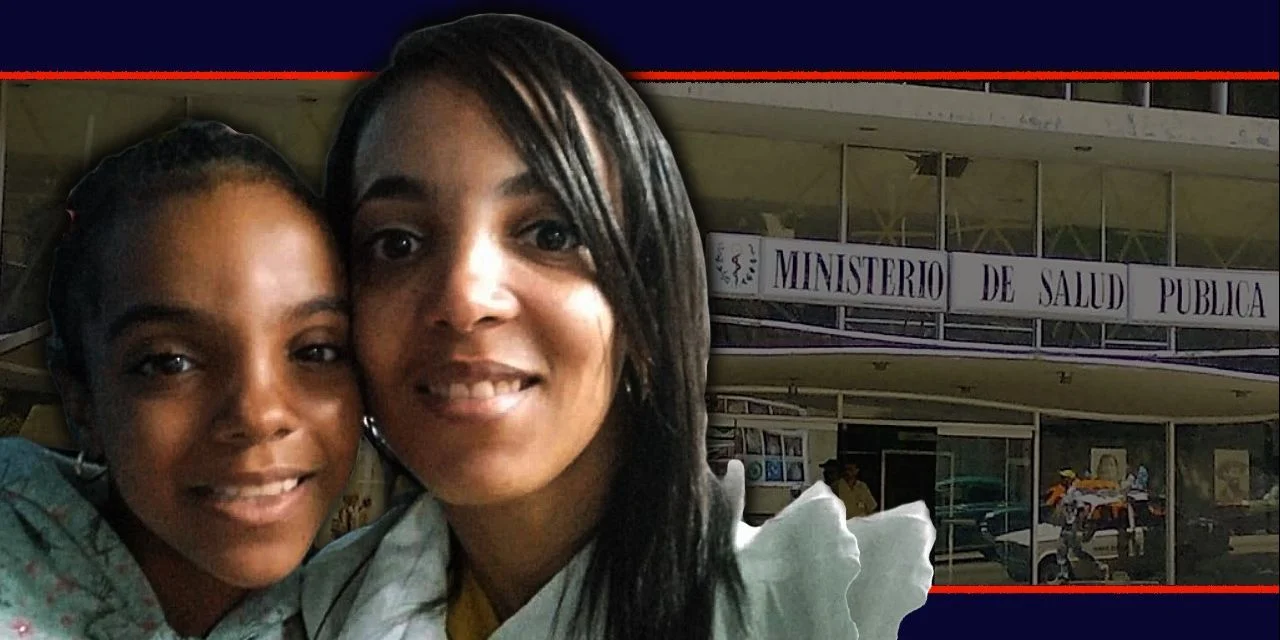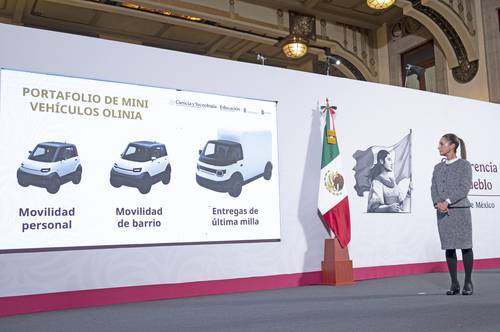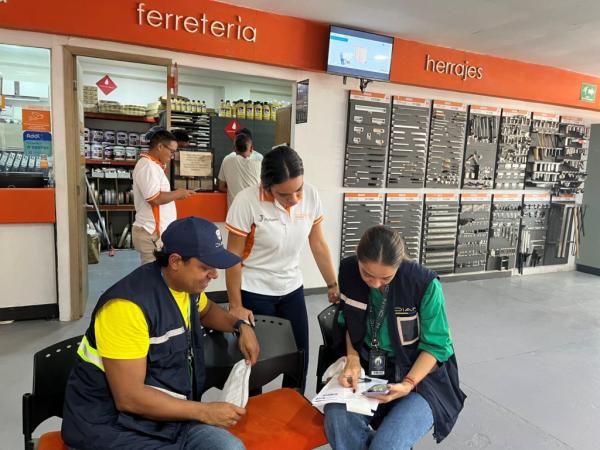I am a doctor, from Sancti Spiritus, mother of two children: my Dailén, 10 years old, and my Daimel, 14 months old. My oldest daughter was born on December 23, 2014, apparently healthy, passing genetic tests and prenatal follow-ups. There was no indication in the subsequent consultations, except for the mother’s hunch that alerted me. I knew something was not right and I cried in the early morning when I looked at her in her crib and saw the “abnormal” configuration of her tummy.
For a year and a half I tirelessly examined it with the help of my teachers and colleagues without getting results and only getting many to call me “crazy.” And it was understandable because neither the blood tests nor the x-rays showed any disease.
Except for a slight anemia detected in a first hemoglobin test at six months, everything seemed fine. When she was one year old, she was still overwhelmed because a mother knows, so I repeated the analysis. There was the iron deficiency anemia again and the enlarged spleen. An organ that at this stage is in danger of visceral rupture and can be torn at any moment with a blow, with a jump.
Dailén was 18 months old when Dr. Ernestina Reyes Navarro, who has never let go of my hand and is now my family, informed me about the cysts in her kidneys. That day everything changed.
Diagnosis, symptoms, treatment
On February 15, 2017, Danielly Yero was told that her daughter had autosomal recessive polycystic kidney disease. It is a condition: both parents carry the disease, but they do not suffer from it. In fact, many times they only find out when it manifests in their offspring. The small pockets of fluid cover the kidneys and gain unstoppable weight. They don’t stop growing, nor do new ones come out. The result is chronic kidney failure and damage to other organs.
Today all of Dailén del Carmen Chávez Yero’s organs measure much larger than normal, especially the left kidney. This has caused an increase in the size of his spleen, as well as his creatinine levels. Now his kidneys work less and cannot purify what is necessary. It is the prelude to possible kidney failure.
Danielly is a doctor and did not need to be explained that her daughter’s pathology has no cure. She knew it and collapsed because she could do little for the girl, except alleviate what arose with momentary solutions that would keep her alive. To do this, she began the specialty of Pediatrics (which she had to abandon in the third year) and did her own research to find out how to help her daughter with the new complications associated with her condition, since the health system was not going to be of much help.
In a flash, Dailén was diagnosed with portal hypertension, esophageal varicose veins, gastritis and liver cirrhosis. With the diagnoses came multiple consultations at different hospitals in the country and endless routine exams, but nothing that really healed the girl.
In her house, from the moment they wake up, she is the center of everything. The family ensures that she has what is essential, which in her case is an endless list of care that ranges from feeding her adequately in an increasingly lacking Cuba to bringing her the medicines she needs to school and confirming that she takes them with her juices in her schedules.
Dailén’s mother checks his urine, poop, and vomit every day to make sure there are no traces of blood.
At the end of the day, bathe her with boiled water and neutral PH gel; Also check that it is at the correct temperature. When a girl is retaining bile or her atopic dermatitis worsens, pieces of her skin may come off. Danielly applies a combination of ointment and creams to relieve it. Then he puts her to bed, religiously covers her with white sheets and leaves a light on. It is the quickest way to immediately detect if you are bleeding while you sleep.
Due to her condition, the girl needs many medications daily, and the vast majority, 23, are medications that are not available in the Cuban health system. Some (15) disappeared with the current shortage crisis, the others do not exist in Cuba. On that list there are pills as simple as enalapril and hydrochlorothiazide to control hypertension and which were supplied regularly in the past. Since then, Danielly has had to resort to the informal market to acquire them because they disappeared from pharmacies (a bottle of 30 enalapril pills costs 1,200 pesos).
Not having them is unthinkable. The lack of these medications has caused nosebleeds and an increase in blood pressure above 150/110.
Among those 23 medications that he needs and does not have is also ferrous sulfate in syrup, essential to keep his iron levels under control and which is not supplied in Cuba, but Dailén has a tireless mother who knocks on a thousand doors until she gets them. Many people give him some out of charity; others are purchased with the help of friends and family. Her salary as a doctor is 5,000 pesos, the same amount that a single can of fortified milk costs, essential for her daughter.
Along with the medications that the health system does not guarantee, the option they gave the family was to subject the girl to small patching surgeries: removing veins from one place and putting them in another to help the liver have more blood, but This affects the kidneys and in the long term destroys both systems. They should also periodically perform endoscopies to evaluate the situation of the esophageal varices and prevent bleeding that could end their life. These reviews have also been suspended due to lack of resources.
But neither non-existent drugs nor surgical procedures are a long-term solution for Dailén. The only treatment that would give her a real opportunity to grow is a multi-organ, liver and kidney transplant; and that intervention is not done in Cuba. In fact, and although official propaganda omits it, there are fewer and fewer operations to donate and receive organs on the Island.


According to the International Registry of Organ Donation and Transplantation (IRODaT), in 2022 – latest data available – there were only 12 surgeries of this type in Cuba, 94% less if we take into account the 206 performed in 2019, before the pandemic.
Not even children in serious condition have benefited from these interventions: Amanda Lemus (two years at the time of the intervention) had to travel to Spain, where she is still recovering, to undergo surgery; Ashley Manuela Echaide Mesa (two years old) died in Mexico after complications from a liver transplant performed at a hospital in Monterrey. Cristian Miguel Bencomo (three years old) died on August 6, 2023 in Havana waiting for a surgery that he needed since he was 45 days old and that he never received, despite having a donor.
In the case of Dailén there is no possibility of surgery in Cuba either. Their relatives have not even undergone compatibility tests to determine if any of them could donate.
His mother and his doctor
When I was diagnosed I went into shock with sudden loss of consciousness. Afterwards I was in denial, a denial that prevented me from speaking, eating, bathing and distanced me from painful reality. I was diagnosed with long-term adjustment disorder. In the long run I understood that I would never adapt to this situation but that I couldn’t leave my daughter in my hands, that I had to take care of her. I am his mother and I am a doctor. Then no one will protect her better than me.
This is too strong. Today I weigh just over 40 kg, I have insomnia, my hair falls out. I have had skin lesions and a nervous twitch in one eye. They discovered cardiac arrhythmias and gastric ulcers. I don’t go out, I don’t talk, I just cry and I’m in a bad mood almost always. I lost the will to live and I only stand because I am sure that what I do for her no one else can do.
Every day I make him consume no less than three liters of water and I walk around with his pomo everywhere giving him the drink because the best medicine is still water. Add to that taking care of a house and a 14-month-old baby.
It’s exhausting, but I don’t want people to think that having a child in these conditions screws up your life, what screws up your life is having a child in these conditions in a place where you can’t treat him, where you can’t take care of him, where you can’t feed it. In another place my daughter and I could have a more bearable and peaceful life. I would be giving him all the care I know I can give him, along with all the love he needs. We would have a life closer to normal.

A thousand times we have arrived at hospitals with any of its complications and we have returned home because the doctors have nothing to treat it or do not know what to do.
The helplessness is such that they do not consider removing the spleen to avoid emergency complications. Here they like to wait until it is serious, until there is no other solution and it bursts and then remove it. There they can say in the Newscast “we saved her.”
In consultations they only inform me about what is possible to do with the resources that are available and leave out what we really need, but I do research and I am a doctor. I know perfectly well how it works and how they force doctors to remain silent.
Out of friendship, specialists sat me and his father down and told us the truth, but without being able to write it down because they lose their jobs if they leave the terrible conditions of the hospitals in a document.
They go to the point where they no longer write in the medical history. The summary I got says almost nothing because they can only state what is allowed.
Precisely because I know this inside out, I cannot sit and wait for the Cuban system. I know they won’t do anything and then it’s just another kid who’s time is up. That’s why I’m selling my house, my clothes, my mom’s, toys. My daughter is seeing that while her friends wait for the Three Wise Men, I sell her and her brother’s toys. I do whatever it takes to get her out of here and saved in another country. Because they are not going to take my daughter away from me. I gave him life and I will keep it for him.
Editor’s note: The use of the images of the minor in this report was authorized by both parents.















